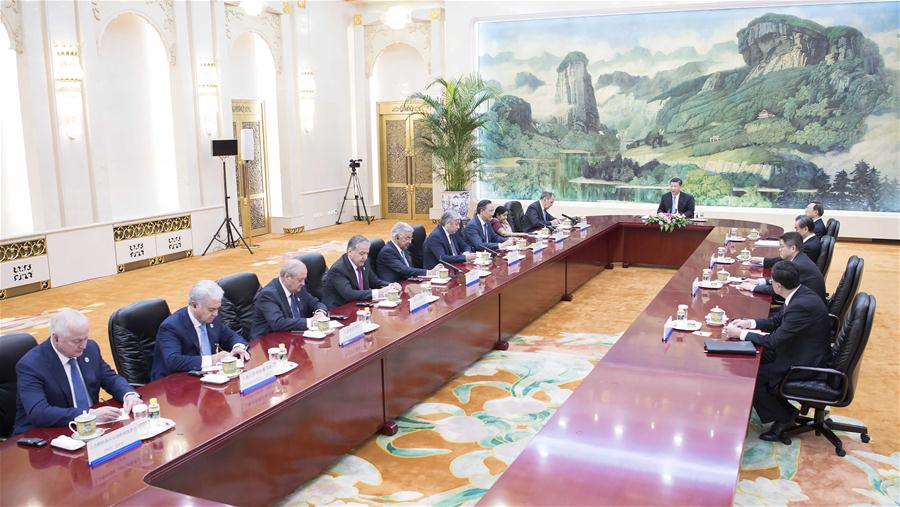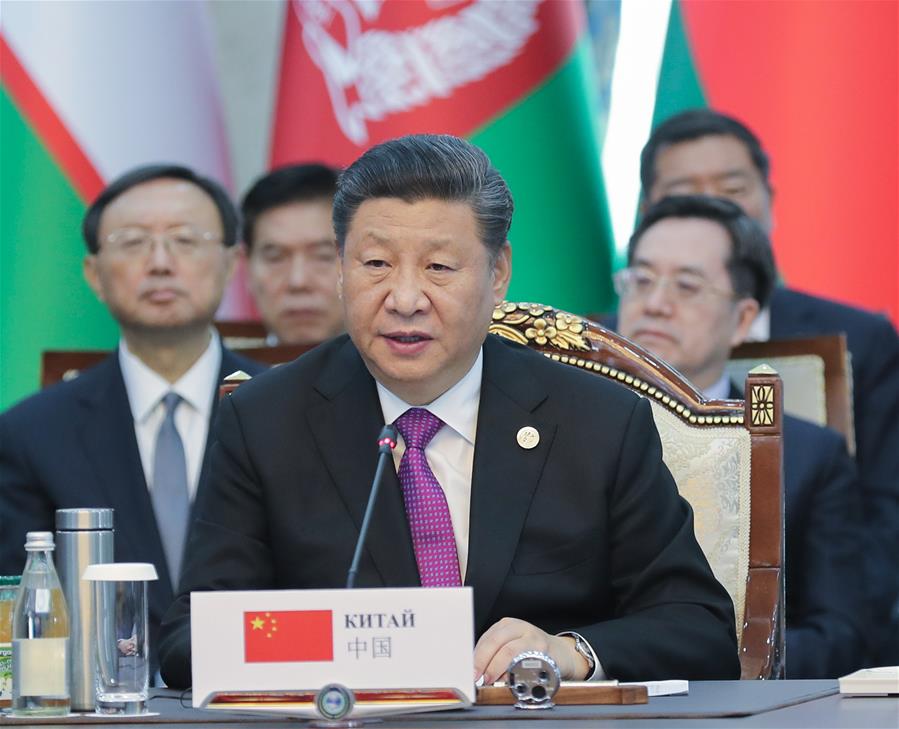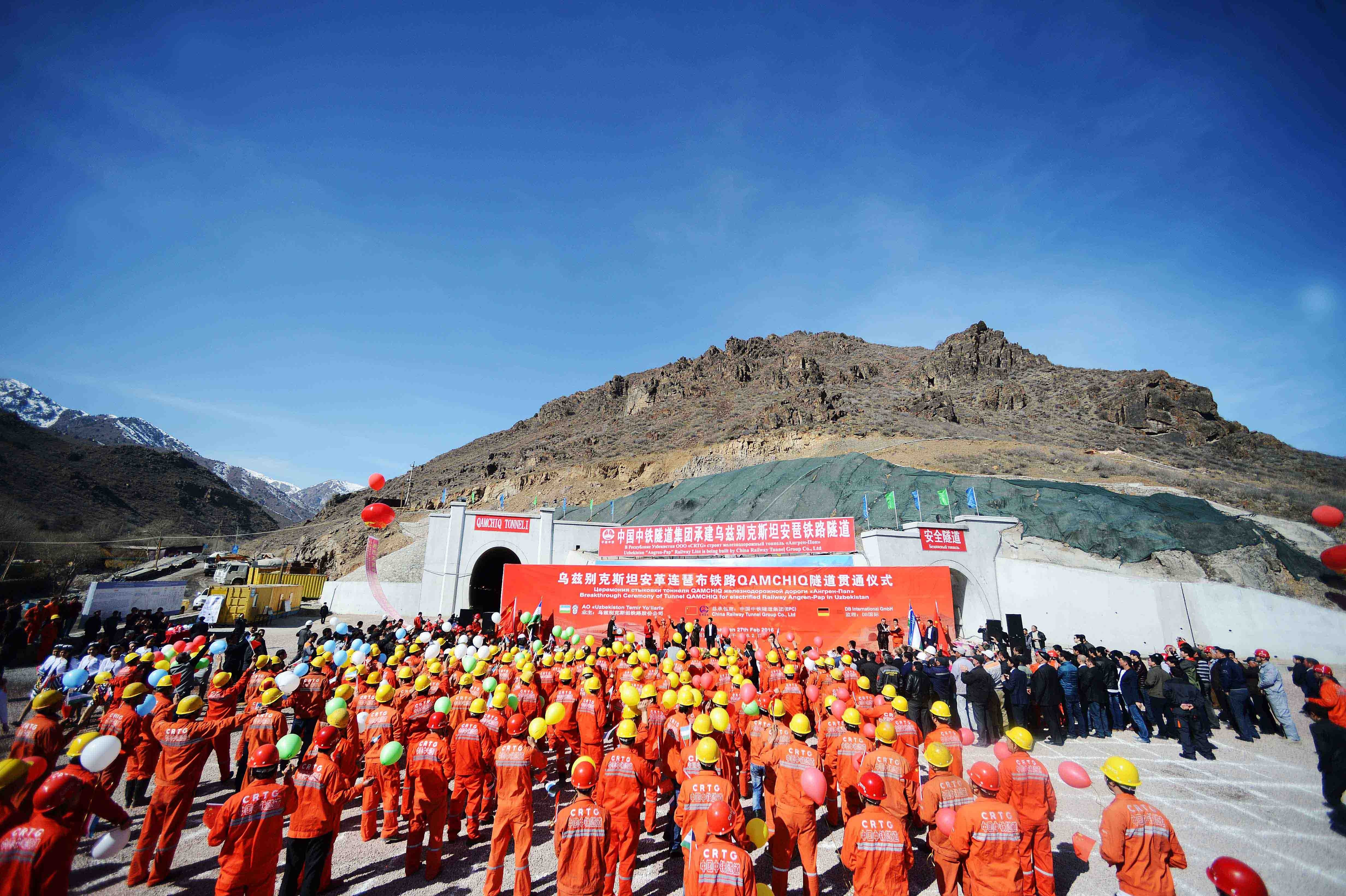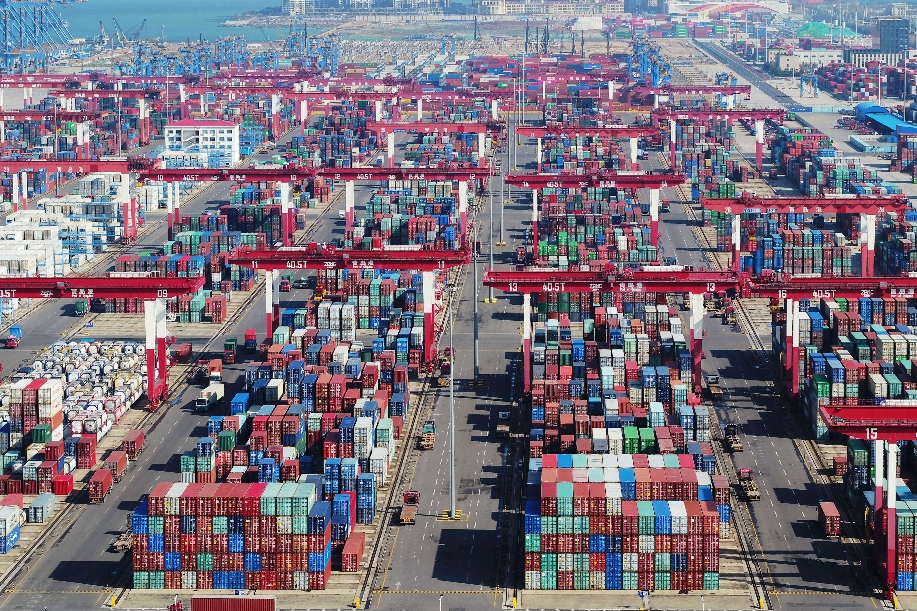Chinese President Xi Jinping will attend the 20th meeting of the Council of Heads of State of the Shanghai Cooperation Organization (SCO) in Beijing on November 10, at the invitation of Russian President Vladimir Putin, and will deliver an important speech. The meeting will be hosted via video link by Russia, which holds the rotating SCO presidency this year.

Xi meets with foreign ministers from Russia, India, Kazakhstan, Kyrgyzstan, Pakistan, Tajikistan, and Uzbekistan, as well as with SCO secretary-general, and the director of the SCO Regional Anti-Terrorist Structure Executive Committee in Beijing, capital of China, April 23, 2018. (File Photos: Xinhua)
More than two years ago, when Xi met with foreign ministers of the SCO members and SCO officials in April 2018, he made the following comments on the development of the SCO:
“The SCO, established nearly 17 years ago, has undergone an extraordinary development process and become a comprehensive regional organization with vast influences.
“Member countries have promoted cooperation in various areas and played constructive roles in regional and international issues, and therefore set an example of a new-type of international relations featuring mutual respect, fairness and justice, and win-win cooperation.”
Why is the SCO called an example? What are the differences between the SCO and other international organizations?
The Shanghai Spirit
On June 15, 2001, the SCO was founded in Shanghai as the first international organization named after a Chinese city. The Shanghai Spirit, featuring mutual trust, mutual benefit, equality, consultation, respect for diversity of civilizations and a pursuit of common development, is considered the important ideological basis and guiding principle for the successful development of the SCO.

Xi addresses the 19th meeting of the Council of Heads of State of the Shanghai Cooperation Organization (SCO) in Bishkek, Kyrgyzstan, June 14, 2019.
Xi has said that the Shanghai Spirit “has underpinned the SCO's development and represents the trend in contemporary international relations.” It is clear that the Shanghai Spirit echoes the new international relations concepts of mutual respect, fairness and justice, and win-win cooperation advocated by China's diplomacy, providing ideological guidance for countries to get along with each other.
The Belt and Road
Most of the SCO member states are along the ancient Silk Road, which indicates that the Belt and Road Initiative (BRI) was born with an inseparable connection to the SCO.

Workers attend the completion ceremony for Qamchiq Tunnel, part of the Angren-Pap railway line, in Uzbekistan, Feb. 27, 2016.
It was in Kazakhstan, a member state of the SCO, that Xi proposed the building of the Silk Road Economic Belt. Over the past several years, the Belt and Road Initiative has been piloted in the SCO regions. Member states have synergized development strategies, improved interconnection between regions, prompted trade and investment facilitation, and launched international capacity cooperation to promote people-to-people exchanges. The early achievement gained by the BRI in the SCO regions has not only promoted local economic development, but also benefited local people.
A community with a shared future
After 19 years of development, the SCO has become a comprehensive regional cooperation organization that covers the largest area and population in the world.

Aerial photo taken on November 8, 2018 shows the container terminal of Port of Qingdao, East China's Shandong Province.
When it comes to the future direction of the SCO, Xi said, “We need to establish the awareness of solidarity, mutual benefits and win-win results, strengthen cooperation, get together for self improvement, and build SCO into a community of destiny and interests for its member states, making it a reliable guarantee and strategic support for member states to work together for stability and joint development.”
Over the years, SCO member states have joined hands to maintain regional security and stability. Solid efforts were made to actively explore complementary advantages, constantly strengthen the integration of interests, and build a community with a shared future.
(Original story from Xinhua; Translated by Fan Weizhi and edited by Zhang Jian)


